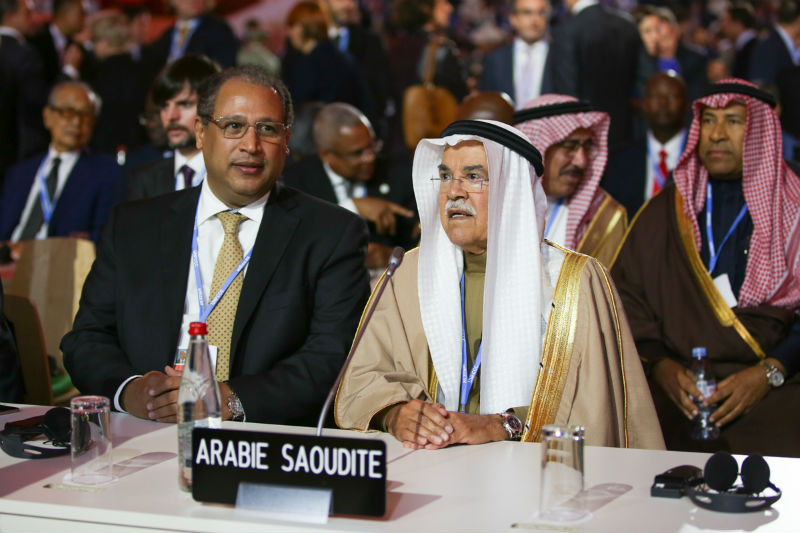By: Karl Mathiesen and Diego Arguedas Ortiz
Send to a friend
The details you provide on this page will not be used to send unsolicited email, and will not be sold to a 3rd party. See privacy policy.
[PARIS] India and Saudi Arabia have emerged as major opponents to the science behind a tougher global warming target that emerged over the weekend at the UN climate talks.
Last week, many industrialised nations, led by France and Germany, started a push to tighten the target cap on global warming from two degrees Celsius above preindustrial levels to 1.5 degrees Celsius. But despite more than 100 countries backing the target, India and Saudi Arabia teamed up with a string of developing nations to block the official adoption of a completed, three-year scientific review aimed at convincing sceptics that the 1.5 degree target is feasible.
The weekend negotiations in Paris, France, were the last chance to approve the UN review before the final week of the COP 21 meeting and to allow the science behind the report to become an official record of the Conference of the Parties (COP), the decision-making authority of the UN Framework Convention on Climate Change. Only science that has been accepted as an official record can be used as a basis for COP decision-making.
“Saudi Arabia and India were unwilling to allow the content of that report to go forward. To have no outcome from that review is completely unacceptable.”
Anonymous negotiator
The UN and scientists agree that a rise of 1.5 degrees Celsius is the only safe level of warming for some of the world’s most vulnerable communities — most notably small island nations.
An island negotiator, who wished to remain anonymous, said after the debate: “Saudi Arabia and India were unwilling to allow the content of that report to go forward. To have no outcome from that review is completely unacceptable.”
The so-called 2013-2015 review was issued by the Subsidiary Body for Scientific and Technological Advice (SBSTA), which supports COP. In June, Saudi Arabia blocked the report’s adoption during the pre-Paris climate talks in Bonn, Germany.
Following the Paris defeat, the Philippine delegation, which heads the Climate Vulnerable Forum (CVF) of 33 developing countries, chastised “parties who stand in the way of recommending a sound decision based on the information available”.
In a closing statement, the CVF said: “There is no question for the vulnerable countries who are already losing 2.5 per cent of GDP and 50,000 lives each year at less than one degree of warming that we condone an outcome that commits us to undermining our survival.”
But one island negotiator said the report can still be saved if the French presidency of the COP talks decides to revisit it during the general plenary sessions around the overall draft agreement this week. This provisional document approved last Saturday contains 1.5 and two degrees Celsius as temperature target options, both bracketed to signal that negotiators remain unable to reach consensus over which target to use in the final agreement.
To address this alleged problem, the draft agreement under negotiation this week proposes asking UN advisory body the Intergovernmental Panel on Climate Change to report before 2020 on the impacts of global warming of 1.5 degrees Celsius above preindustrial levels.














